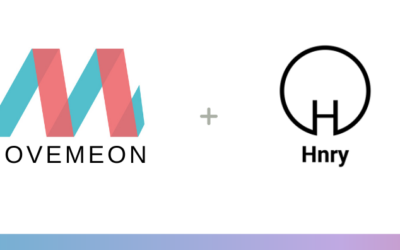The gender pay gap in UK startups & scale-ups is 25%, way above the national average of 15%. In the past, it was not uncommon that men and women would be paid different salaries despite holding the same role. Now the gender pay gap is driven by two main drivers.
If you’d like to receive a full bespoke benchmarking report covering specific and personalised insights into salaries, pay rises, equity, diversity and much more, click here.
Not enough women in leadership positions
The first of these drivers is a skew in seniority levels; men tend to be in more senior positions than women. In a salary and benchmarking dataset provided by our partner business Payspective, we see that across UK start-ups and scale-ups, the gender distribution across all employees is nearly equal (48% women vs. 52% men). However, once we look at the gender distribution in leadership positions (Director and C-level), the representation of women drops down to 33%.
When only looking at the very top (Founders and C-level), the representation of women drops further down to 19%. A key driver for this is that C-level positions within start-ups are commonly taken up by the founding team, and 80% of start-ups in the UK are founded by men.
A positive trend in the start-up space that’s currently unfolding is that the number of female founders is on the rise, having doubled over the last decade – while 21% of funded UK startups had female founders in 2018, this figure was only 11% in 2011.
Not enough women in tech roles
The second primary driver of the gender pay gap is a skew in terms of role by function that men and women work in, with men more frequently holding highly-paid technical roles such as engineering, software development and data science positions.
This driver holds even more weight in the start-up economy than the wider UK market as a whole as start-ups tend to have a higher proportion of technical roles than traditional businesses and so the gender skew within these roles has a larger impact on the gender pay gap.
What startups and scale-ups can do
So what can you do to close their gender pay gap? There are 4 main levers:
(1) Create transparency
Companies with less than 250 employees aren’t required to report their gender pay gap in the UK, but internal transparency around gender and pay within your business is a positive step to take nonetheless. It’s critical to understand how your businesses pay gap compares to similar companies and what the drivers of this gap are.
Transparency also helps in the recruitment process – including a salary range in job advertisements is not just a good practice in equal recruitment but also increases the number of applications you can expect.
(2) Support equitable progression of men and women into senior roles
Ensure that your culture and processes support women being hired or progressed into senior roles. For instance, think about whether a senior role you’re hiring for could be part-time. Flexibility to work from home and flexibility around working hours help ensure that work commitments can be combined with other duties, and allows candidates from a wider background to apply and be considered.
(3) Hire women into tech roles
Hiring women into tech roles is a challenge that many companies struggle with – and it’s an especially important one for the tech-dominated startup and scaleup scene. What can you do?
Make a conscious effort to recruit female tech talent. Go to women in tech events, focus on diversity and inclusivity on your blog and recruitment pages, and highlight success stories of women in tech roles within your organisation. The effort you put into hiring women into tech roles early on will pay off tenfold in the long run – hiring your 10th woman into a 20 person developer team will prove much easier than hiring your 1st woman into a 20 person developer team.
(4) Ensure you have the right processes for recruiting, salary negotiations and pay rises
Finally, make sure there are no structural or cultural issues with pay differences in your organisation. Men tend to be more comfortable asking for a pay rise than women so you’ll have to make sure that you have robust processes around salary reviews and pay raises in place (don’t just give pay raises to the people who ask the loudest).
Men also have a tendency to apply for a job even if they’re not a perfect fit with the requirements whereas women tend to only send off that application if they’re sure the job is a great fit and they meet all the expectations listed in a job description. So while a man who wants a part-time job may simply apply to a full-time position and try to negotiate it down to 80%, a woman would be less likely to do so. If there’s a potential for a role to be part-time – make sure to include it on the job spec.
Working for a UK startup or scaleup and looking to hire? Get in touch!




